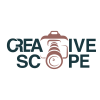Economics is the study of how people make choices when they don’t have enough of everything they want. It’s a social science, like psychology and sociology, that looks at how individuals, businesses, and governments decide how to use their resources to meet their needs and desires.
Example of How Economics Works
Imagine you have a limited amount of money to spend on food each month. You need to decide how to allocate your resources to get the most satisfaction from your meals.
- Scarcity: You don’t have enough money to buy all the food you want.
- Choices: You have to choose which foods to buy based on your budget and preferences.
- Opportunity cost: The cost of buying one food is the other foods you could have bought with the same money.
Let’s say you have $100 to spend on food this month. You could buy a $50 steak or a $20 pizza. If you buy the steak, you won’t have enough money to buy the pizza. The opportunity cost of buying the steak is the pizza you could have had instead.
Economics is all about making choices in the face of scarcity. We all have limited resources, and we have to decide how to use them to get the most satisfaction from life.
Basic Element Of Economics
The base of economics is scarcity and choice. These fundamental concepts form the core of economic study and provide the foundation for understanding how economic systems function.

- Scarcity:
- Scarcity refers to the fundamental problem that resources are limited, while human wants and needs are virtually unlimited.
- Resources include natural resources (like land and minerals), labor (human effort), capital (machinery and technology), and entrepreneurship.
- Since these resources are finite, societies must make decisions on how best to allocate them to satisfy as many needs and wants as possible.
- Choice:
- Because resources are scarce, individuals, businesses, and governments must make choices about how to use them.
- Opportunity Cost is an important concept in economics that reflects the cost of forgoing the next best alternative when making a decision. This helps in assessing the benefits of different choices.
- Economic agents (individuals, firms, or governments) must decide what to produce, how to produce it, and for whom it should be produced.
- Trade-offs:
- Scarcity forces trade-offs—choosing one thing often means giving up something else.
- For example, a government must decide whether to spend resources on healthcare, infrastructure, or education, as it cannot fully satisfy all these areas simultaneously due to limited budgets.
- Supply and Demand:
- The principles of supply and demand are at the heart of how prices are determined and resources are allocated in markets.
- Demand represents the desire of consumers to purchase goods and services, while supply is the amount producers are willing to provide at a given price.
- The interaction of supply and demand in the marketplace determines prices and influences production decisions.
- Incentives:
- Economics also studies how incentives influence behavior. Incentives can be monetary (e.g., prices, profits) or non-monetary (e.g., social recognition, satisfaction).
- Positive and negative incentives shape the choices made by individuals, firms, and governments.
- Rational Behavior:
- Economics often assumes that individuals and firms act rationally by weighing costs and benefits to make decisions that maximize their utility (satisfaction) or profit.
- This concept is important in predicting economic outcomes and modeling economic behavior.
These basic elements—scarcity, choice, trade-offs, supply and demand, incentives, and rational behavior –make up the foundation of economics, helping us understand how decisions are made and how resources are distributed to meet human needs and wants effectively.




Leave a Reply